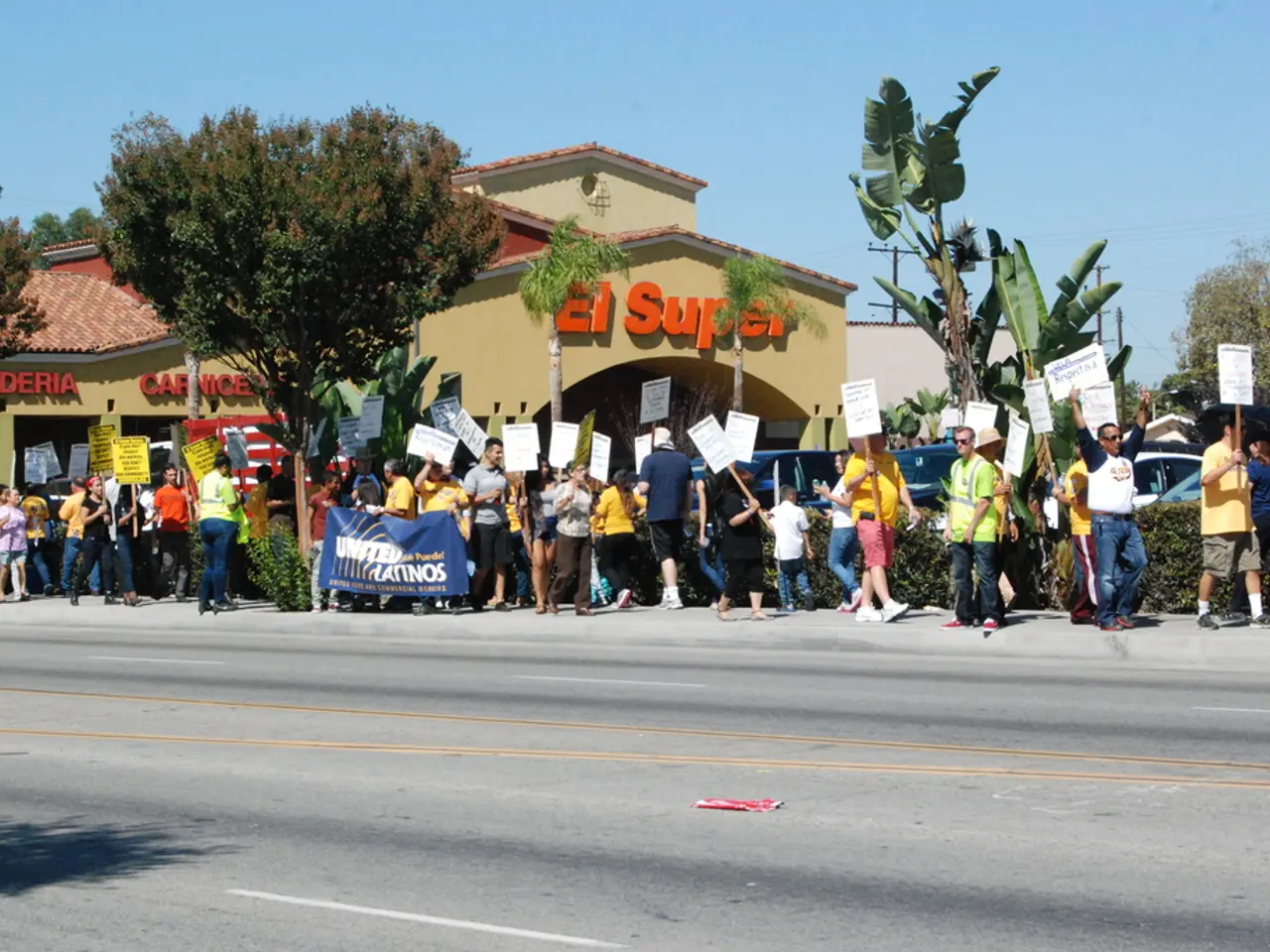Utilization of Data Science in Political Forecasting
In the modern political landscape, data science is playing an increasingly significant role in shaping campaigns and elections. This transformative technology is helping political entities evaluate different strategies, predict voter behavior, and optimise resource allocation.
A key technique in this data-driven approach is A/B testing, which enables campaigns to compare the effectiveness of various messages, visuals, or outreach methods among specific voter groups. By analysing the results, campaigns can identify the most effective strategies to engage with their target audience.
Another crucial aspect is data enrichment, the process of adding third-party data to voter files. This information enriches the understanding of voter interests and behaviours, providing a more comprehensive view of the electorate.
Political campaigns also leverage predictive analytics to identify swing voters, optimise resource allocation, and tailor messaging based on likelihood to vote or support a candidate. Turnout prediction models, for instance, use historical turnout rates, registration data, and engagement indicators to estimate turnout likelihood.
Geospatial analysis is another powerful tool, helping to identify voting trends across districts. This information is invaluable in allocating resources like canvassing, advertising, and rallies effectively.
Research groups like the Potsdam Institute for Climate Impact Research (PIK) and the Leibniz Centre for Agricultural Landscape Research (ZALF) are also employing data science to improve political forecasting. PIK uses machine learning to synthesise tens of thousands of climate policy studies, while ZALF has analysed over 130,000 scientific publications on drought research, enhancing the prediction of agricultural and environmental risks.
However, with great power comes great responsibility. Ethical concerns surrounding data science in elections include voter manipulation, privacy breaches, algorithmic bias, and lack of transparency in decision-making processes. Microtargeting strategies, for example, use detailed voter data to deliver highly specific political messages, raising concerns about privacy and potential manipulation.
To address these concerns, campaigns personalise messaging using data science by analysing voter profiles to craft targeted messages that resonate with specific groups. Machine learning algorithms are used to identify complex patterns in data to forecast results, though models must be trained carefully to avoid bias or overfitting.
Tools like Python, R, Tableau, SAS, TensorFlow, and political data platforms like NationBuilder or Civis Analytics are being utilised for data-driven political predictions. Pollsters incorporate weighting, regression analysis, and Bayesian models to correct biases and enhance forecast reliability.
Real-time analytics allow campaigns to adapt strategies instantly based on feedback loops, sentiment shifts, and emerging events. Sentiment analysis, for instance, helps understand public opinion on issues, leaders, and events, providing insights for campaign adjustments and voter outreach.
As data science continues to revolutionise politics, it promises to predict election outcomes, voter behavior, and campaign performance with greater accuracy. Voter segmentation is improved by data science using clustering algorithms and behavioural analytics. Algorithms can even detect coordinated misinformation efforts and track the spread of fake news across platforms.
In conclusion, data science is reshaping the political landscape, offering a wealth of opportunities for more effective campaigns, informed decision-making, and a more transparent democratic process. With careful use and ethical consideration, this technology promises to empower political entities and voters alike.
For those seeking assistance in navigating the world of political data science, the contact number to get in touch is 91 9848321284.
Read also:
- Today's most impactful photographic moments
- Support for Eric Adams in The Post's Letters to the Editor on August 13, 2025
- Roosting Shark and Rambunctious Red Squirrels: Unconventional House Rental in Yorkshire Involving Aquatic Marvel, Squirrely Mayhem, and Mystical Planning Regulations
- Legal Dispute Dismissed with Humor: Supreme Court Laughs off Another Civil Matter Mislabeled as Criminal Prosecution








